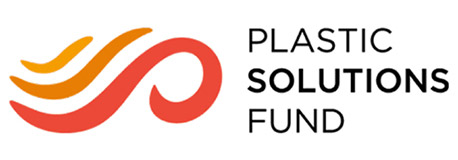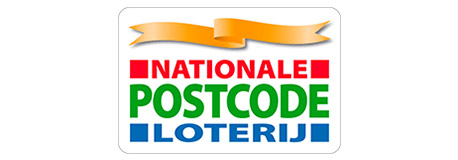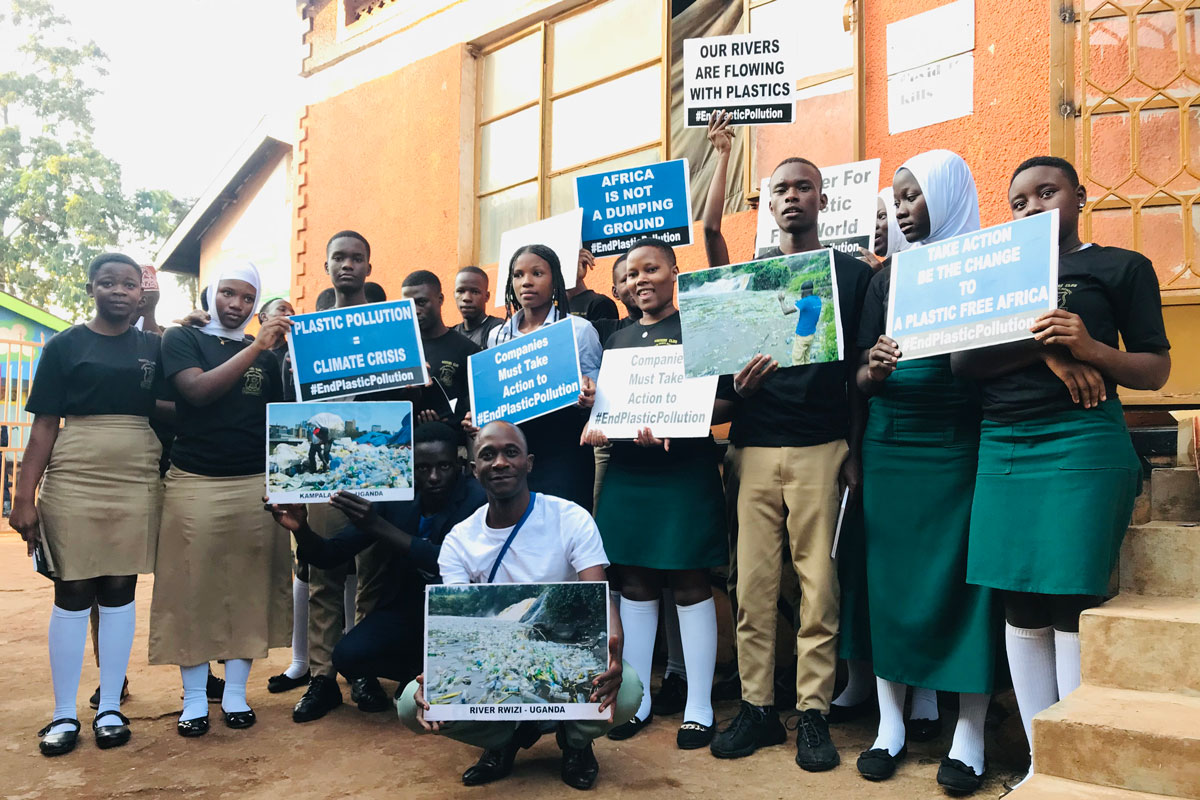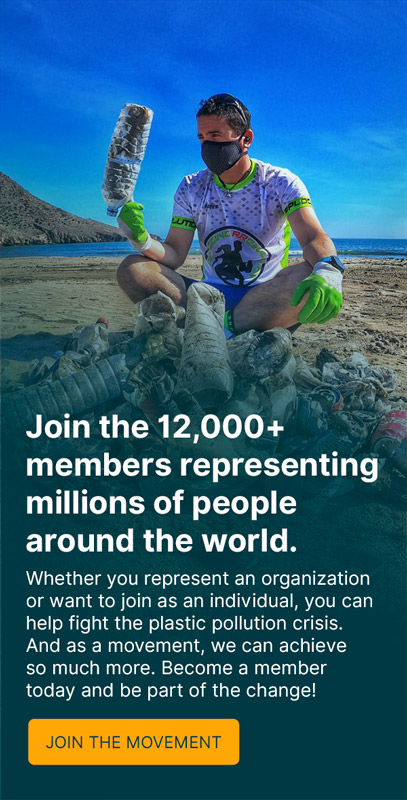The study recorded microplastics made of polyethylene, often used in bags, wrappers and films, in surface waters in several sites on the lake. With the concern of the plastic pollution present in Uganda, End Plastic Pollution has taken the lead with their Plastic Free Campus activities across different schools and universities.
End Plastic Pollution is an environmental organization in Uganda raising awareness towards the science of plastics, its effects on people, the planet and climate system. It is an initiative of youth environmental activists, volunteers, and students to envision a future free of plastic. Through their work, they are gathering data, advocating and informing about the need for corporate polluters to be held accountable for the plastic pollution crisis.
The organization launched their Plastic Free Campus Program in 2021 in partnership with Break Free From Plastic and led by youth leaders that are working with youth, teachers and administrators in Primary and Secondary schools, Universities and other learning institutions.
The program now has a growing network of 12 schools and 4 universities including the prestigious Kampala International University. The organization believes that schools and universities play an important role in developing the mindset, awareness, and shaping habits of future citizens and leaders. They are helping students understand the science behind plastics, its harmful impacts on people and the environment, as well as the need to go plastic-free.
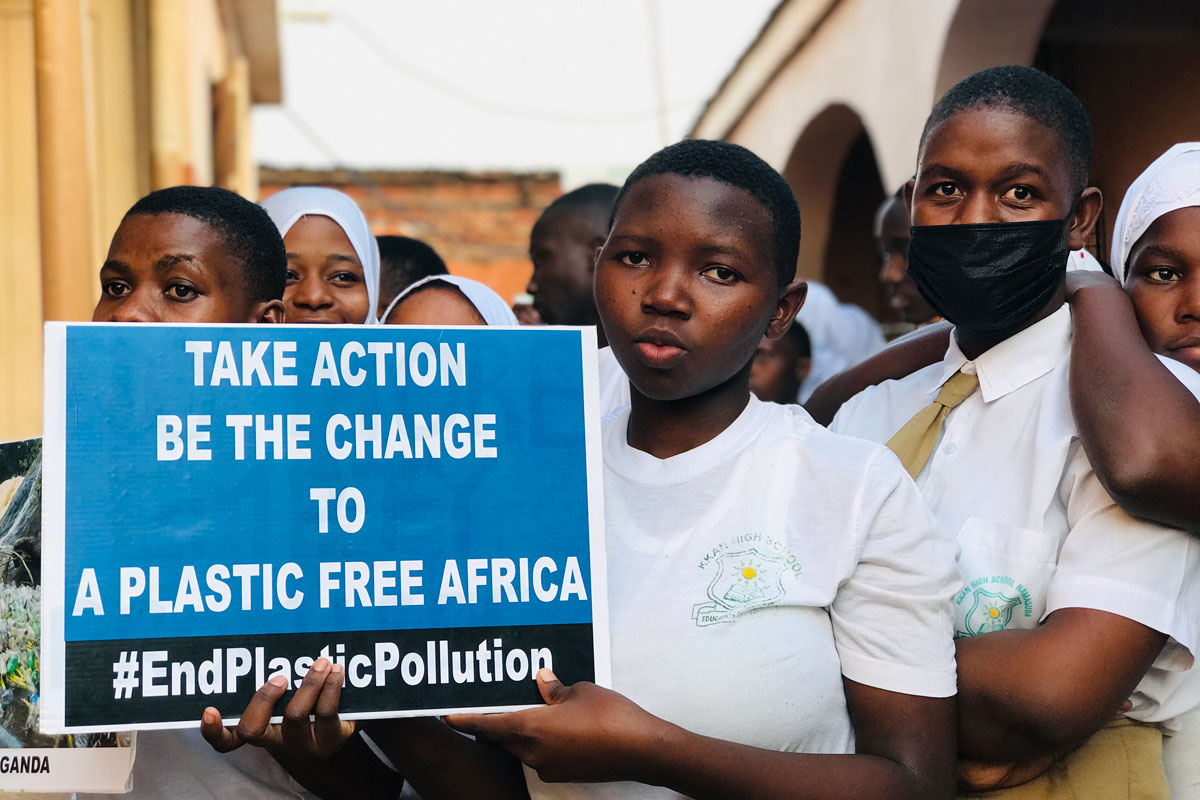
Photo credit: End Plastic Pollution Uganda.
The strategic approach of the program aims to create a platform for knowledge sharing through a series of activities: PFC Starter Seminar on plastic pollution, working with schools to sign the PFC pledge, and developing awareness with Brand Audits.
Through their Plastic Free Campus program, End Plastic Pollution have engaged over five thousand students, one hundred and twenty teachers and are mentoring six active students’ environmental clubs in schools with a membership of three hundred students.
Among the participating schools, three schools have restricted the use of plastic packaging bags in school canteens. Others, such as St Andrews Schools, Light College and Kkan High school have gone further to restrict visitors during official school visiting days, to ban bringing any plastic carrier bags locally known as “Kaveera,” and also ban school canteens selling these plastic goods on campus.
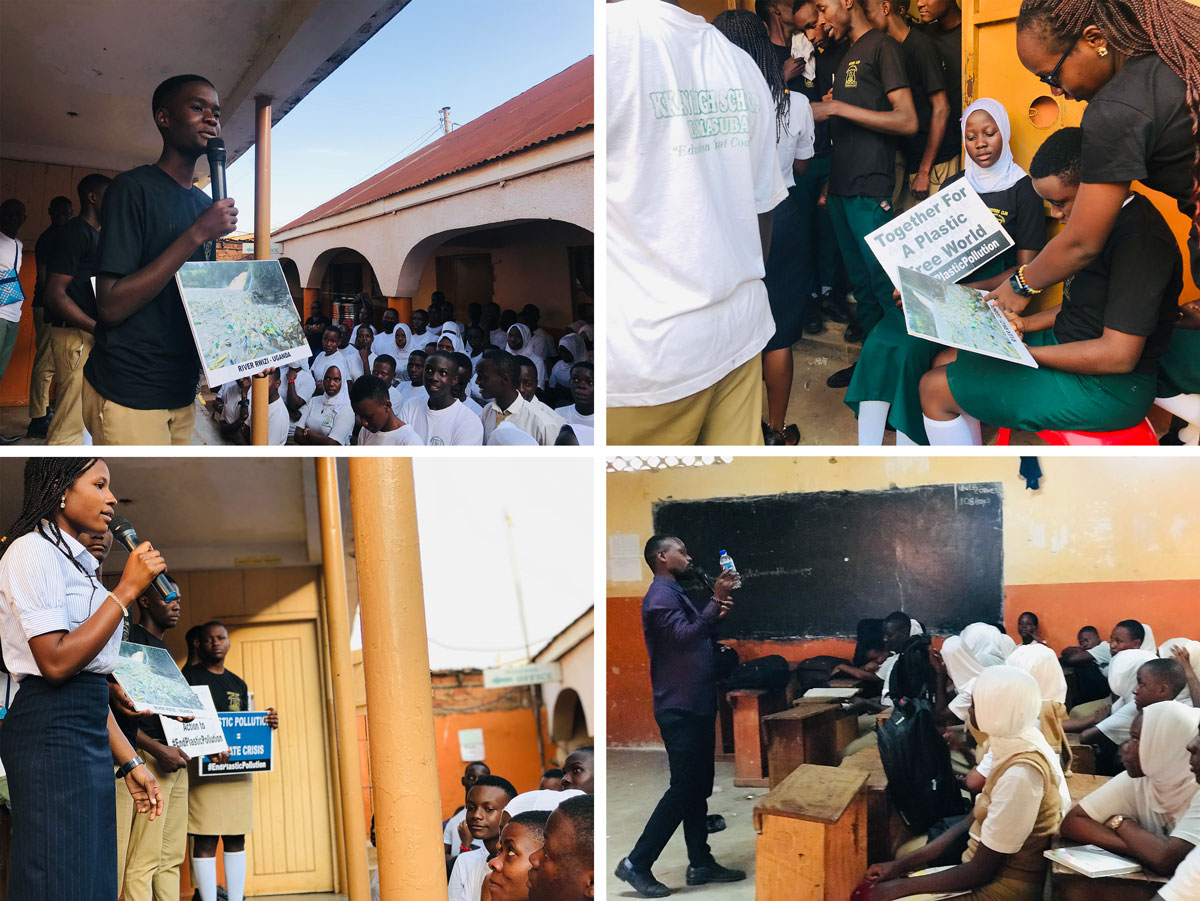
Photo credit: End Plastic Uganda.
Kkan High School, the latest member to join the Plastic Free Campus program, received a visit from End Plastic Pollution. Presentations were conducted to students focused on helping them to understand what plastics are as a material and its lifecycle. Examples of the impacts of plastic pollution in local communities were shown. The organization explained the plastic's impacts to the soil and water and the meaning for the many Ugandans that are dependent on Agriculture for food and earning income. Also, the students were engaged to think about ways to avoid single-use plastics and know what information they can share with their parents, friends and people in their local communities.
Students were very welcoming and eager to learn more about plastics, and shared about how plastic is affecting their communities. Zahara, a senior two student, shared how plastic is intoxicating the soils and affecting crop growth in her home district of Luweero. Andrew, a student in senior three class, is from the slums of Katwe in downtown Kampala City and shared that when plastics get into drainage channels, it leads to spread diseases like cholera and diarrhea.
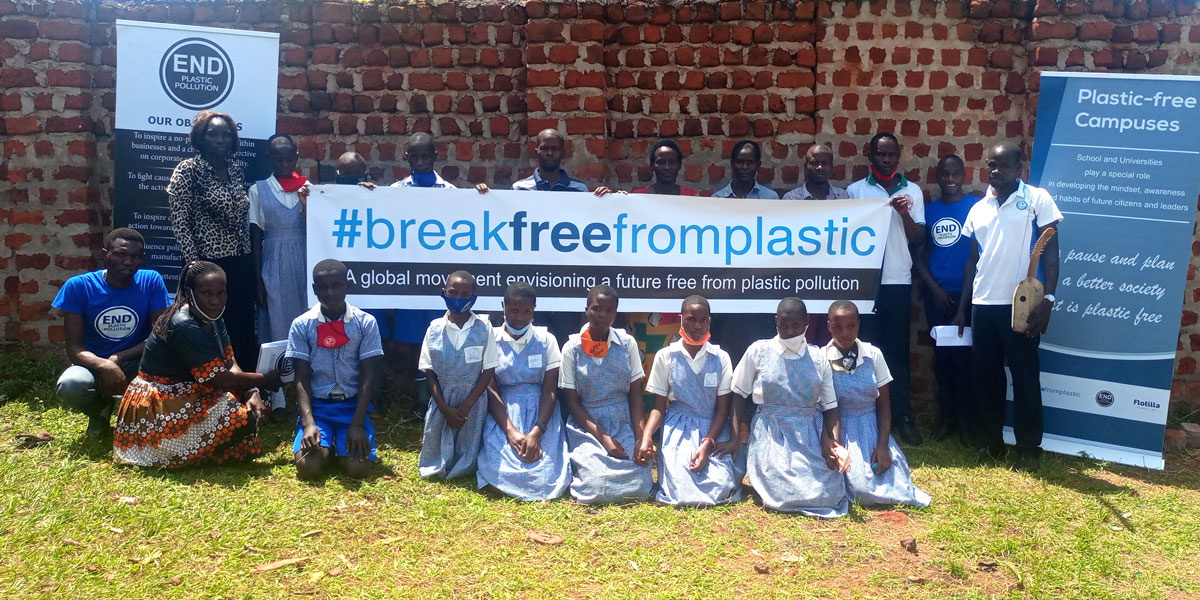
Photo credit: End Plastic Pollution Uganda.
To identify the top 10 polluters companies found in Uganda, End Plastic Pollution conducted in 2021 a brand audit in the shores of Lake Victoria. From their 2021 Brand Audit Report, twenty-four volunteers collected over four hundred plastic items, and the most found companies were The Coca Cola Company, PepsiCo, and Harris International. For this year’s report, the organization is planning to take further action and include sachets and unbranded items in their report, and also return the trash with a letter to the leading polluter.
To keep updated about the PFC campaigns in Uganda, follow End Plastic Pollution on Facebook, Twitter, Instagram.
Are you a teacher and want to learn more about how to integrate Plastic-free Education Curriculum into your own lesson plans? Break Free From Plastic is launching their first ever training program for educators.
Learn more about the map for science-integrated Plastics Education for Teachers.
Sources:
Robert Egessa, Angela Nankabirwa, Henry Ocaya, Willy Gandhi Pabire, Microplastic pollution in surface water of Lake Victoria, Science of The Total Environment, Volume 741, 2020.
Author's bio: Rafael Eudes is a Chemical Engineering student of the Federal University of Rio de Janeiro, member of the Circula UFRJ and ReUni organizations, and a BFFP youth ambassador.
Break Free From Plastic Youth and BFFP Plastic-free Campuses is supported by:
